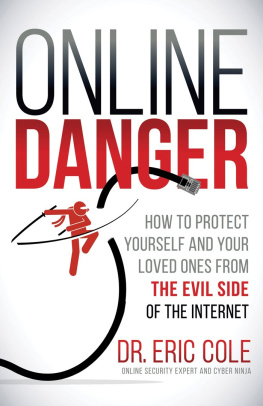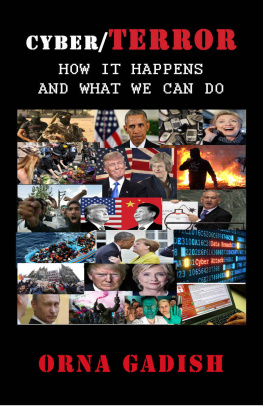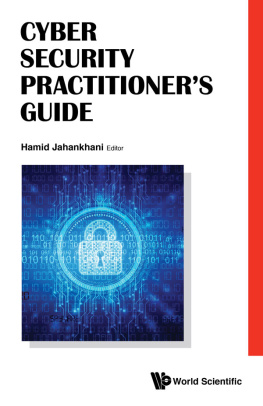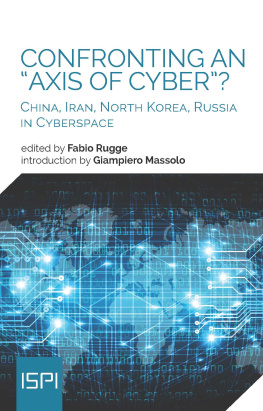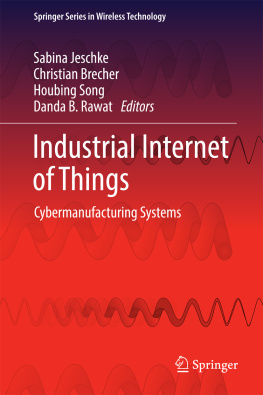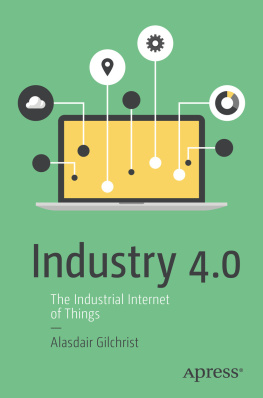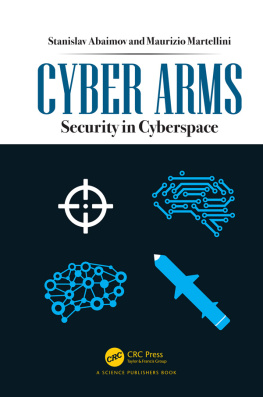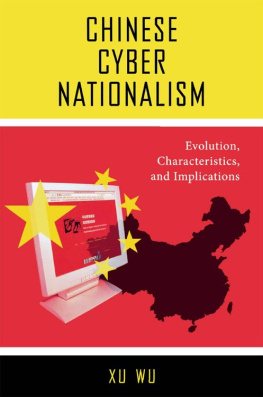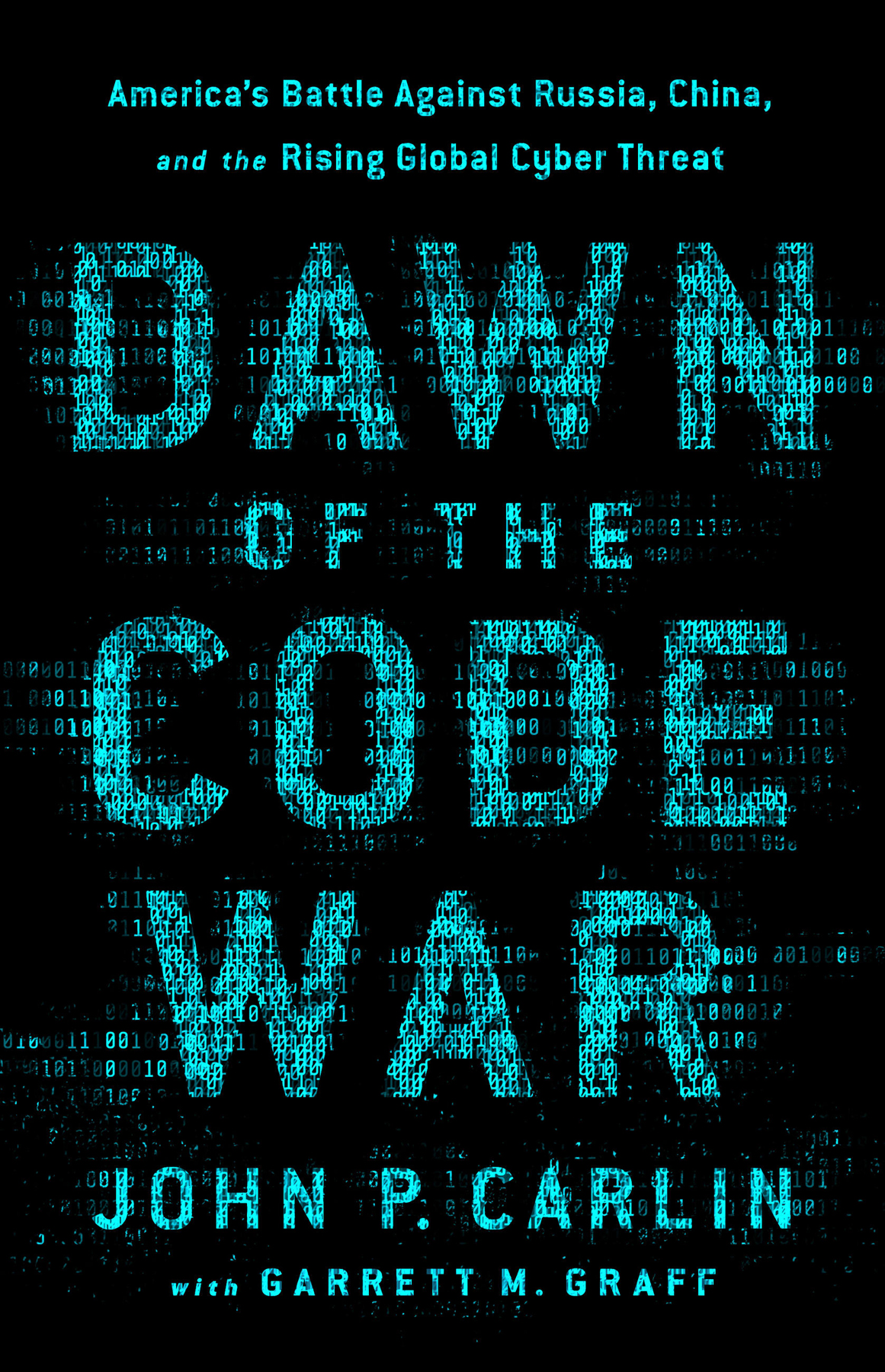Copyright 2018 by John P. Carlin
Hachette Book Group supports the right to free expression and the value of copyright. The purpose of copyright is to encourage writers and artists to produce the creative works that enrich our culture.
The scanning, uploading, and distribution of this book without permission is a theft of the authors intellectual property. If you would like permission to use material from the book (other than for review purposes), please contact permissions@hbgusa.com. Thank you for your support of the authors rights.
PublicAffairs
Hachette Book Group
1290 Avenue of the Americas, New York, NY 10104
www.publicaffairsbooks.com
@Public_Affairs
First Edition: October 2018
Published by PublicAffairs, an imprint of Perseus Books, LLC, a subsidiary of Hachette Book Group, Inc. The PublicAffairs name and logo is a trademark of the Hachette Book Group.
The publisher is not responsible for websites (or their content) that are not owned by the publisher.
All statements of fact, opinion, or analysis expressed are the authors alone and do not necessarily reflect the official positions or views of the Department of Justice or any other US government agency. This article has been reviewed by the Department of Justice to prevent the disclosure of classified or otherwise sensitive information.
The Library of Congress has cataloged the hardcover edition as follows:
Names: Carlin, John P., 1973author. | Graff, Garrett M., 1981author.
Title: Dawn of the code war : Americas battle against Russia, China, and the rising global cyber threat / John P. Carlin with Garrett M. Graff.
Description: First edition. | New York : PublicAffairs, [2019] | Includes bibliographical references and index.
Identifiers: LCCN 2018020918 (print) | LCCN 2018028431 (ebook) | ISBN 9781541773813 (ebook) | ISBN 9781541773837 (hardcover)
Subjects: LCSH: Cyberspace operations (Military science)United States. | CyberterrorismHistory. | CyberspaceSecurity measuresHistory. | Computer securityUnited States. | Computer crimesUnited States. | Information warfareUnited States. | National securityUnited States. | CyberterrorismPrevention. | Internet in espionage. | EspionageUnited States.
Classification: LCC U167.5.C92 (ebook) | LCC U167.5.C92 C37 2019 (print) | DDC 327.1273047dc23
LC record available at https://lccn.loc.gov/2018020918
ISBNs: 978-1-5417-7383-7 (hardcover), 978-1-5417-7381-3 (ebook)
E3-20180904-JV-NF
To Sarah, Sylvie, Patricia, and Roy; and to the men and women of the Department of Justice who protect our way of life and keep us safe
M Y FIRST INTERACTION with Barack Obamas presidential campaign in 2008 was explaining to them that their computers had been hacked by the Chinese government. Eight years later, one of my final cases as assistant attorney general for national security was chasing Russias attempts to influence the presidential election through hacking the Democratic National Committee and Hillary Clintons campaign. In between, I was privileged to serve with those on the front lines of the international fight to secure the internet, helping to combat online not just China and Russia, but also Iran, North Korea, terrorists, organized crime groups, and even lone hackers. Yet even as I left office in 2016, it was clear that the nations efforts against hackers remained insufficient.
We thought the nation had awoken to the cyberthreat after North Koreas attack on Sony; we thought it had happened after the hacking of 22 million of the federal governments personnel records. But even in those final months of the administration in 2016, the national security apparatus debated what it should say publicly about the Russian hacksand how soon it should speak. The answerunfortunatelywas too little, too late. And even now, after the damage and the effect are clear, theres no sign that the hacks caused any policymakers in Washington to change course as radically as we need to ensure our security going forward. That practiced ignorance is hardly a new invention. Way back in 2012, one of my Justice Department colleagues, Christopher Painter, who had dedicated years of his life to fighting cyberthreats,
That pattern continues. In the year following the attack on the 2016 election, we saw the hacking of Equifaxwherein the personal, intimate life details of effectively every adult American were stolenand word came, too, of a new type of security vulnerability in the Intel chips that power todays technology that affects nearly every device manufactured since 1995. The scale of these problems should make it clear that ignoring or wishing away cybersecurity concerns cannot be the answer. This game is being played under the table every day by governments, criminals, and other online adversariesyet its one that increasingly is having an impact on our daily lives and our personal security.
Cybersecurity isnt just a wonky IT issue. Poor security online represents a genuine threat to the American way of lifeone that will only accelerate as more of our day-to-day lives move online, into the cloud, and into the digital world. Cybersecurity, it turns out, is key to modern life. Its essential to the way we bank, shop, learn. Increasingly, its a necessity for the way we drive, heat our homes, and even vote. There is no longer such a thing as e-commerce, only commerce. Protecting our digital lives is no longer just about ensuring we dont lose our family picturesits about protecting our values, our health, our culture, and our democracy. The attacks of the last decade by nation-states, organized crime groups, and even individual hackers threaten to undermine trust not just in our institutions but also in the very information that powers our society, from financial and medical records to the news that informs our society.

Cyberspace got its start on a street in Vancouver. In the early 1980s, writer William Gibson was walking down Vancouvers Granville The spaceship didnt capture his imagination. I was painfully aware that I lacked an arena for my science fiction, he recalled later. His early work to that point had focused on the interactions of humans and technologyso-called cybernetics, the science of how communications and automatic control systems work in both machines and living things.
As Gibson proceeded down the brightly lit but seedy Granville, past the fading theaters, the pizza stores, strip clubs, and pawnshops, he passed a video arcadeand inspiration arrived. Looking inside, he realized he was staring into another world; the kids were totally enveloped by the blinking lights and beeping of their primitive plywood arcade games. I could see the physical intensity of their postures, how rapt the kids inside were, he later recounted during an interview with Whole Earth Review. He felt he could see the photons coming off the screens into the kids eyes, neurons moving through their bodies, and electrons moving through the video game. Sure, it was only Pac-Man or Space Invaders, but these machines transported the players to another dimension. As Gibson said, These kids clearly believed in the space games projected. Everyone I know who works with computers seems to develop a belief that theres some kind of actual space behind the screen, someplace you cant see but you know is there.
Yet the moment when computers would be a real part of daily life still seemed far away; the computers he knew at the time were the size of the side of a barn. Then, Gibson passed a bus stop with an advertisement for Apple Computers, the upstart technology firm led by wunderkind Steve Jobs. He stopped again and stared at the life-sized businessman in the ad. As Gibson recalled, the businessmans neatly cuffed arm was holding an Apple II computer, which was vastly smaller than the side of a barn. Everyone is going to have one of these, I thought, and everyone is going to want to live inside them, he recalled. Somehow I knew that the notional space behind all of the computer screens would be one single universe.


